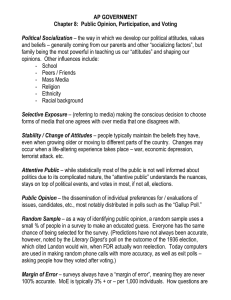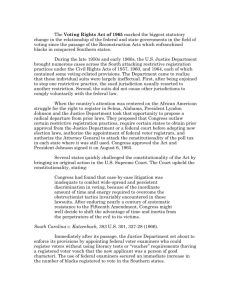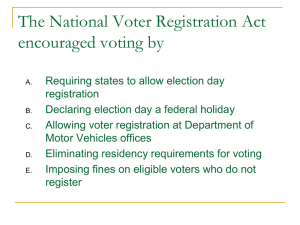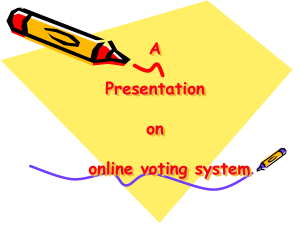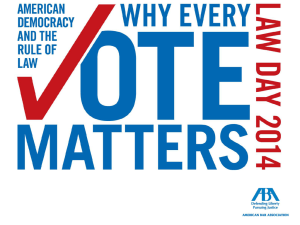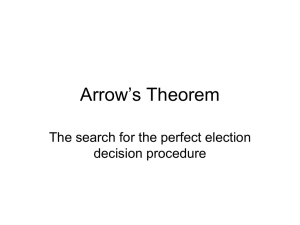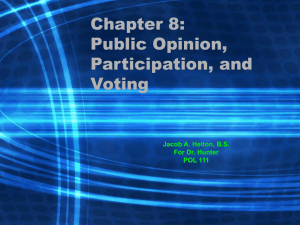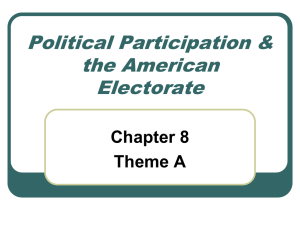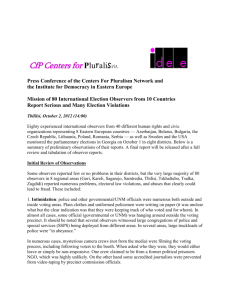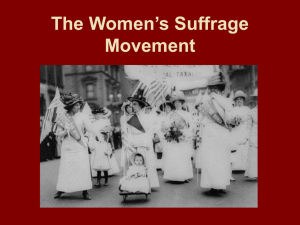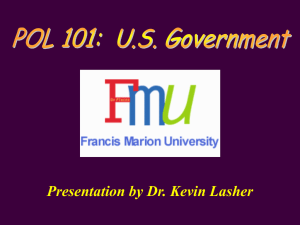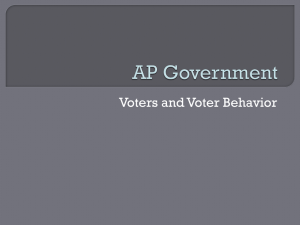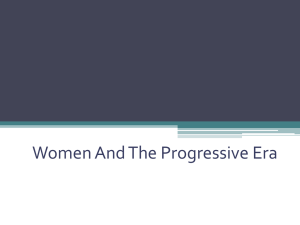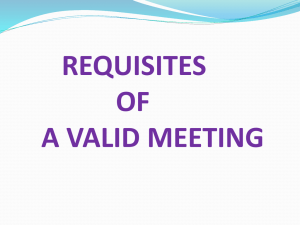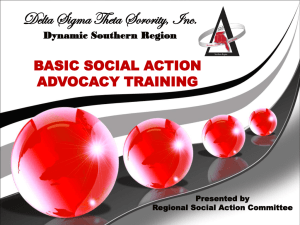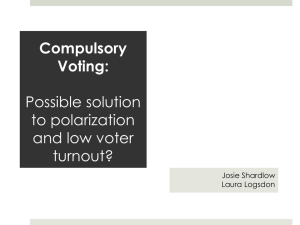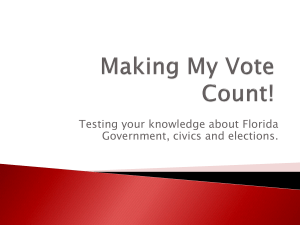Chapter 6 powerpoint
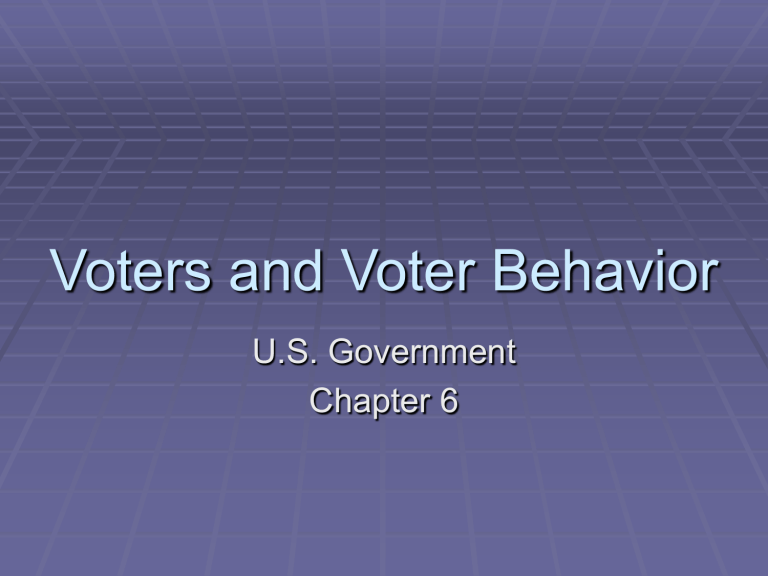
Voters and Voter Behavior
U.S. Government
Chapter 6
Vocabulary Terms – Chapter 6
Suffrage
Franchise
Electorate
Transient
Registration
Purge
Poll books
Literacy
Poll Tax
Gerrymandering
Injunction
Preclearance
Off-year election
Political efficacy
Political Socialization
Gender gap
Party identification
Straight-ticket voting
Split-ticket voting
Independent
The Right to Vote
Suffrage
Franchise
Electorate
Chapter 6
Voters and Voter Behavior
History of Voting Rights
Expansion of the Electorate
205 Million eligible voters
Benjamin Franklin often lampooned this situation.
He told of a man whose only property was a jackass and noted that the man would lose the right to vote if his jackass dies. “Now,” asked
Franklin, “in whom is the right of suffrage? In the man or the Jackass?”
Extending Suffrage
Religious Qualifications
Property Qualifications
Direct election of Senators
15 th Amendment – Civil War Amendments
1920 - Gender – 19 th Amendment
1960’s - Enforcement of Voting Rights acts
1961 - 23 rd Amendment – District of Columbia added to Presidential electorate
1964 - 24 th Amendment – eliminated the poll tax
1971 - 26 th Amendment – 18 year olds
Voting Qualifications
State defined with minimum Federal reg.
Universal Requirements
Citizenship
Must be a U.S. Citizen
Residence
To prevent out of state residents from disrupting state politics (Kansas)
Age
Cannot be prevented if 18 – may be allowed if younger – 17 year olds voting in primaries
Other Qualifications
Registration
All States except North Dakota
Literacy
Not a requirement
Grandfather Clause
Tax Payment
24 th Amendment – outlawed poll tax
Persons Denied right to Vote
Mental institutions – Convicts – Dishonorably discharged from military (not all States)
Fifteenth Amendment
Registration Laws
Jim Crow laws – continued to prevent blacks from voting
Gerrymandering
The practice of drawing electoral district lines in order to limit the voting strength of a particular party or group.
Civil Rights Act of 1964
Outlaws discrimination in several areas, especially in job-related matters.
Forbids the use of any voter registration or literacy requirements in an unfair or discriminatory manner.
Voting Rights Act of 1965
Made the 15 th Amendment a truly effective part of the Constitution.
This act applied to all elections held anywhere in this country – State and local, as well as federal.
Preclearance
(p. 162)
That no new election laws, and no changes in existing election laws, could go into effect in any of those States unless first approved – given preclearance – by the Department of Justice.
Examples:
Location of polling places
The boundaries of election districts
Deadlines in the election process
Changes from ward or district election to at-large elections
Qualifications candidates must meet in order to run for office
Voter Behavior
Nonvoters
Idiots – Greek word for non-voter
Why People Do Not Vote
Cannot-Voters
Religious beliefs
Mental health care
Jail
Actual Non-Voters
In 2000 – 80 million who could have voted did not.
Factors Affecting Turnout
Satisfied, Apathy,
Inconvenient, registration requirements, long ballots, long lines, Bad weather
Time zone fallout
Lack of interest
Voters and Voting Behavior
How and Why do people vote the way they do? It is predictable?
Sociological Factors
Age
Race
Family
Income, Occupation
Education
Gender
Religion, Ethnic Background
Geography
Psychological Factors
Party Identification
Candidates and Issues
Other issues:
Straight ticket voting
Split ticket voting
Independents
